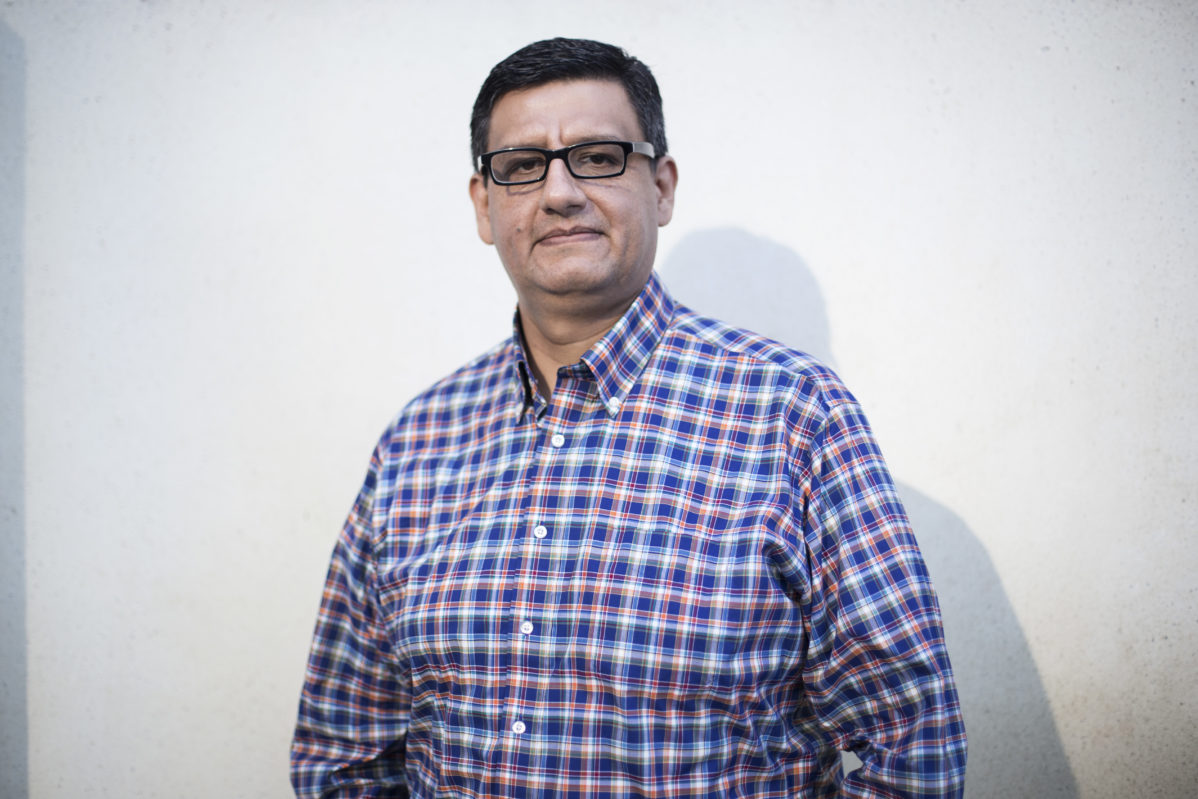Panel discussion stirs controversy, encourages ‘radical disagreement’
Following several death threats, Luis Horacio Nájera along with his wife and three children arrived in Vancouver on Sept. 27, 2008.
In Mexico, Nájera worked as a journalist for the Reforma newspaper, covering crime and corruption along the US and Mexican border. His work attracted the attention of organized crime outfits and some corrupt police officers, and it was time to leave the country.
When he told his wife that they should leave Mexico, Nájera said that she already knew it was time to go. “When you live in a conflict zone, your whole life is transformed,” he said. “You are always looking over your shoulder.”
On the eight-year anniversary of his arrival in Canada, Nájera, now a PEN Canada-George Brown writer in residence, spoke at St. James campus as part of a panel discussion called “Freedom of Expression.”
“It’s interesting that we came here fleeing from death threats and now I’m here sitting talking to you about press freedom,” said Nájera. “I think I’ve moved forward a little bit.”
The panel also featured Haroon Siddiqui, the Toronto Star’s editorial page editor emeritus, Eritrean author, journalist and former PEN Canada-George Brown writer in-residence Eden Eyasu, and was moderated by Paula Applebaum, a professor of communications at George Brown.
Applebaum noted that during the talk, the panelists discussed how students can be empowered to offer their opinion without fear.
“Certainly, empowering students to express their ideas and ask questions, opens the door to potential conflict in the classroom when opinions collide,” said Applebaum. “Part of the solution, panelists agreed, is preparing students for radical disagreement.”
Siddiqui outlined some broad sources of censorship that included government, non-state actors, and what he called people being offended, which is where free expression on campus comes in.
Siddiqui also said that people needed to develop a thicker skin about ideas and terms that offend them, which solicited a gasp from the audience.
In an email to The Dialog, he elaborated, “As all journalists and authors, I favour expanding the boundaries of free speech. But just as there is free speech, there’s also the right to freedom from hate speech, such as anti-Semitic or Islamophobic cartoons and rants.” He added later that it’s important to ask whether someone is disagreeing with you, or launching a hateful attack on you or people like you.
While making campuses safe spaces for students and a place where free speech is exercised presents a challenge, Nájera and his family receiving death-threats for reporting on crime and corruption seems clear-cut.
Since the drug-war in Mexico began in earnest in 2006, Nájera said he knows of seven friends and colleagues who have been killed. While escaping Mexico eliminated some immediate danger for Nájera and his family, becoming refugees and eventually citizens in Canada has not been easy.
Nájera said that he and his wife have been adjusting to leaving behind family and careers in Mexico. “(Being a journalist) was part of my identity, and I don’t have that part of my identity with me here and you miss that part of you so it’s hard.”
Despite sacrificing his career in Mexico, Nájera said that he has no regrets on any of his reporting on crime and corruption.
PEN Canada is an organization that campaigns on behalf of writers who have been persecuted, imprisoned and exiled for exercising their right to freedom of expression.



